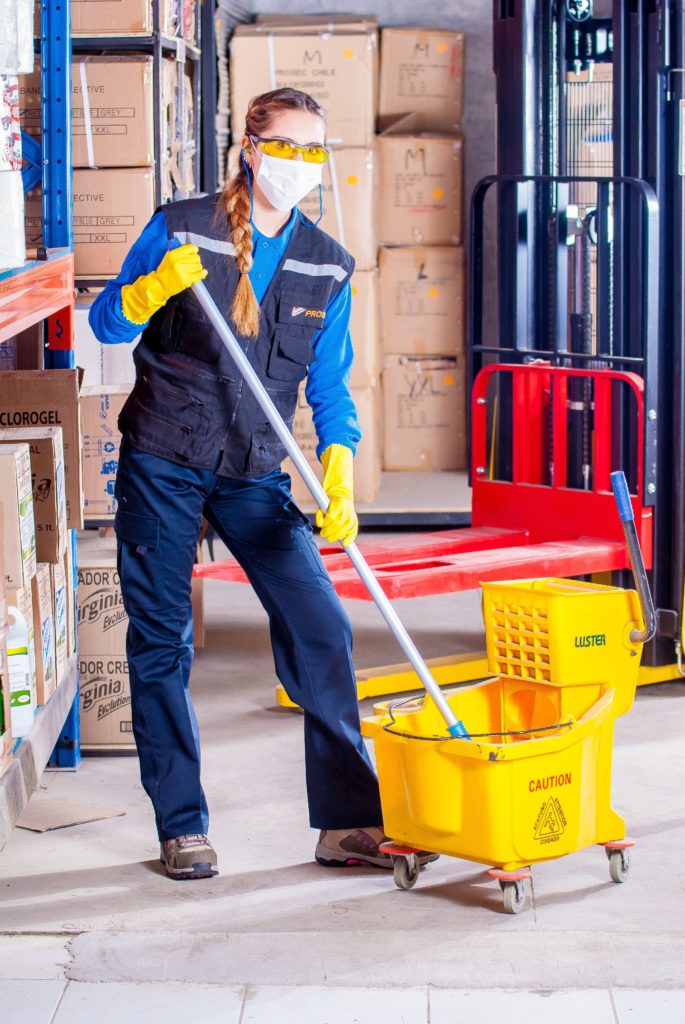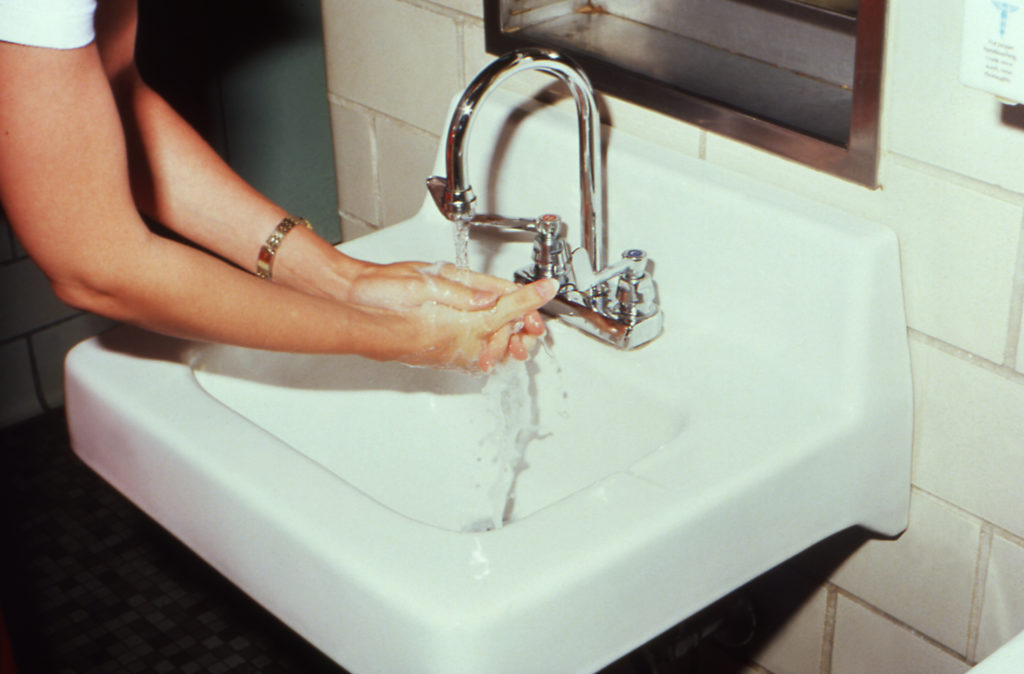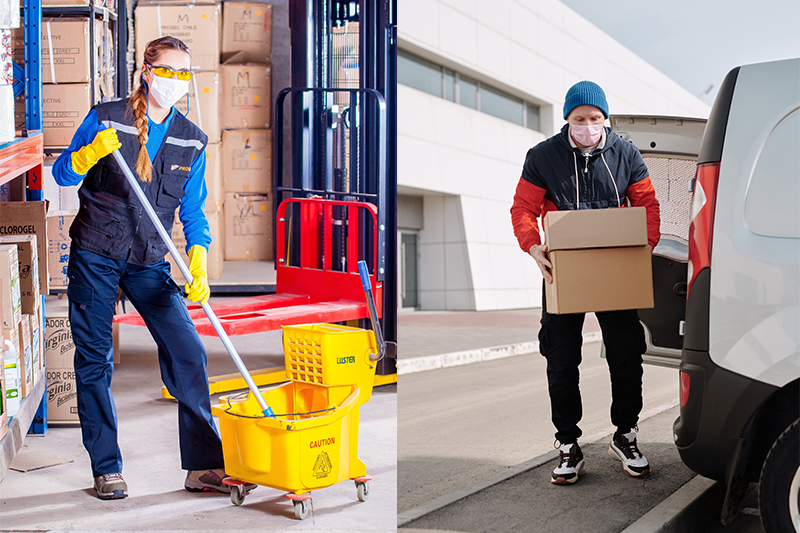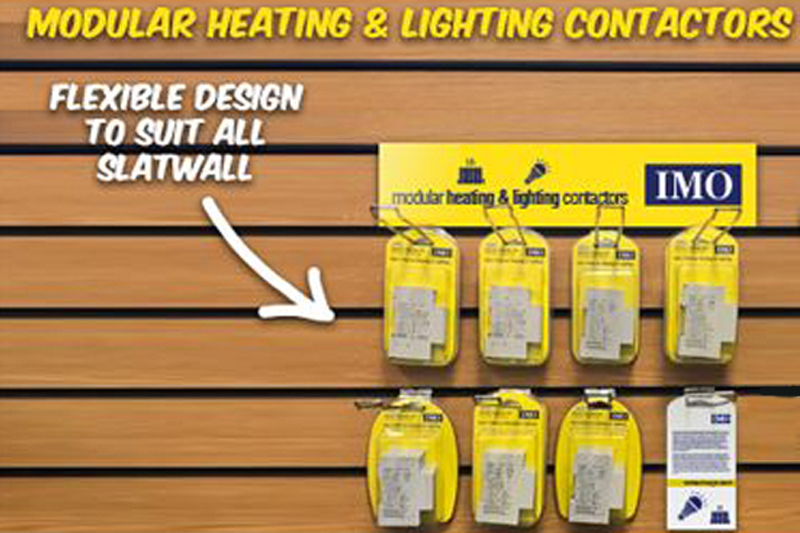If you’re running an electrical wholesale outlet in the UK it’s good to be open and bringing in revenue. However, we need to approach these next few months with due caution. Hugo Tilmouth, CleanedUp, lists the precautions you should be taking.
A quick note on the legal requirements of reopening
It’s worth saying that what follows is simply our advice on getting back to business. It is very important to read the Government guidelines in full yourself, before reopening your store and to keep up with changes. Please click here for the current status of lockdown within your sector.
1. Conduct a COVID-19 risk assessment
As an employer, it is your legal responsibility to protect the wellbeing of staff and customers. That’s why we do health and safety assessments annually.
However, the HSE has issued new guidelines that require businesses to carry out new risk assessments covering COVID-19 with templates to help you.
Once achieved, display the government’s risk assessment certificate prominently — to help put both your staff and your customers’ minds at ease.
2. Cleaning & disinfecting
Keeping your surfaces COVID-secure requires a team effort. Create a clear and focused rota, outlining everything that needs doing.
First, you’ll need to focus on the key surfaces that pose the most risk, such as trolleys, card machines and till points. Ideally, these should be cleaned after every use.
Next, create procedures encouraging cleanliness more generally. Ask your staff to wipe down checkouts as much as possible, and make sure that product shelves and displays are cleaned before they are restocked. Government guidelines advise that your ‘usual cleaning products’ will be sufficient for this. So long as you stick to bleach or alcohol-based solutions, your efforts will be effective.
It’s recommended to leave returned goods in “quarantine” for 72 hours, before they go back into commercial circulation.
 3. Offer hand sanitising
3. Offer hand sanitising
Hand sanitisers are a quick and easy alternative to handwashing, and provide an unbeatable solution for minimising the spread, and protecting staff and customers from COVID-19.
When picking a hand sanitiser, it’s important that it contains a WHO approved formula and is at least 60% alcohol-based. You’ll also need to think about how the hand sanitiser is presented in your premises.
Dispensing stations, for example, near your wholesale store’s doors and tills, will make it clear that hand sanitiser is available.
For more information on providing NHS standard hand sanitiser for your staff and customers, click here to find out how we can help.

4. Provide PPE
Government guidelines stipulate that PPE is only essential in medical environments (other than the new rules for face masks in shops coming in from 24th July 2020). Talk to your staff about how they’re feeling, and have face masks available.
You could also install plexiglass screens around checkout points where social distancing might be difficult to maintain, although this is entirely up to you.

5. Offer flexible work arrangements
Government rules state that all businesses must provide flexible work arrangements whenever possible. Usually this means working from home. But that’s unlikely to be an option for those who work in an electrical wholesale outlet.
That said, it is still important to offer flexibility to your employees — especially for those at higher risk. Try to be understanding of people’s home-lives and responsibilities.
 6. Enforce social distancing rules
6. Enforce social distancing rules
Official government guidelines state that all staff and customers must keep a 1m (in England) and 2m (elsewhere) distance at all times.
To enforce social distancing measures in your shop, you should:
- Provide 1m/2m markers that make it clear where your customers must stand (particularly around checkout points)
- Be mindful of the amount of staff working within an aisle
- Consider introducing a limit on the number of customers allowed into your store at once.
Staff areas should be reassessed, too. If it’s difficult for staff to maintain social distancing while on break, you should consider closing small communal areas, and staggering break times as much as you can.
7. Provide clear guidelines and signage throughout your store
We’ve already mentioned 1m/2m markings, but there are a number of other visual prompts. You can position posters around the store, to remind people to wash or sanitise their hands, always cover their mouth when they cough etc.
If you implement one-way systems or a ban on cash transactions (to avoid person-to-person contact), do all you can to make this as clear as possible, to avoid any confusion.
8. Manage the risk of transmission
When, or if, 1m/2m distancing isn’t possible, you should do all you can to manage the risk of transmission.
For example, if your product aisles are very narrow, or there isn’t enough room for socially distanced queuing, you must consistently manage both the amount of staff and customers present in these areas to avoid overcrowding.

9. Consistently monitor employee health (and general circumstances)
Talk to your staff daily. Ask about their health and general circumstances. If a team member is unwell, or if someone in their household has symptoms, take immediate action and grant them sick leave.
Good teamwork in your electrical wholesale environment will make a huge difference. Good luck!



